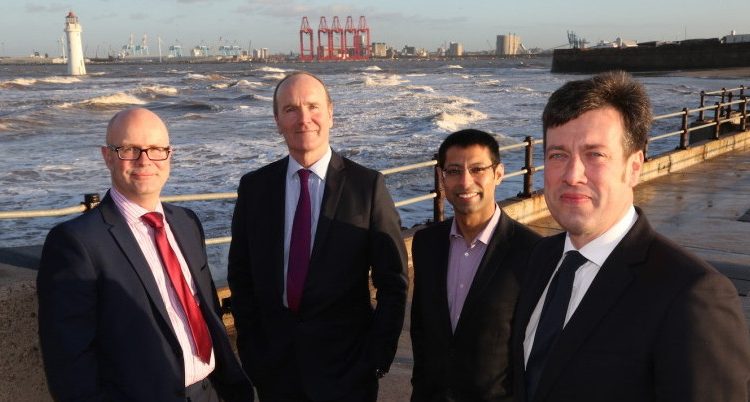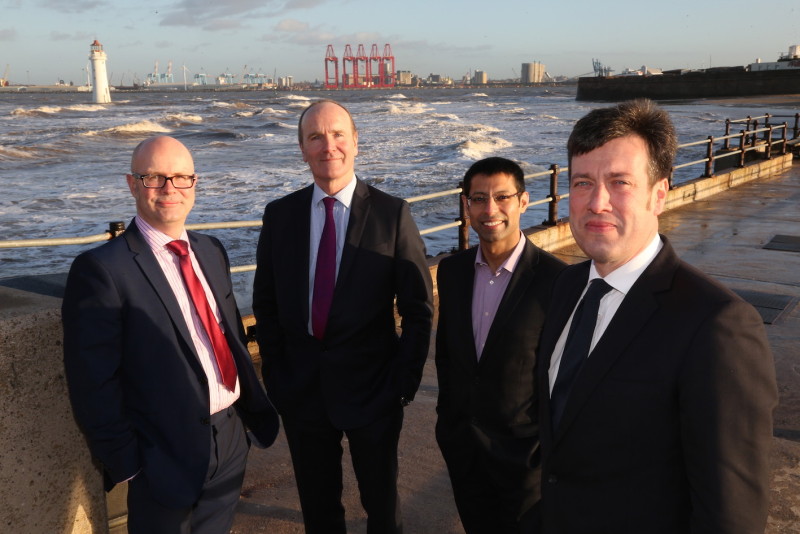Shipping software firm sails ahead with £200k backing
A Liverpool start-up, which has developed a way to reduce shipping costs by more accurately predicting sea levels, has received a £200,000 investment from The North West Fund for Venture Capital, managed by Enterprise Ventures.
Sea Level Research was founded by Dr Simon Holgate, a former scientist with the National Oceanography Centre in Liverpool. Dr Holgate has spent two years developing his software, which combines machine learning algorithms with real-time information on weather and sea levels, and could help oil refineries and the shipping industry to save millions of pounds each year.
The investment will allow the company to bring the product to market. As part of the deal, Mike Finn – who was formerly chief executive of the shipping line CSAV UK & Ireland – has been appointed as the company’s new chair.
Dr Holgate’s software can predict sea levels up to 36 hours in advance to within 20cm, 95 per cent of the time, compared to just 75 per cent of the time using the traditional tides. The first product, Petro Planner, is targeted at oil refineries that rely on sea levels to be able to load and unload cargo. These companies typically pay $30,000 to $100,000 in additional charter costs to the ship owner for each day’s delay. It is estimated that such delays cost the industry $1.3bn a year worldwide.
Petro Planner has been developed with assistance from pilots working on the River Mersey, of whom over 50 per cent are now regular users.
Will Clark of Enterprise Ventures, which manages The North West Fund for Venture Capital, said:
“Petrochemical companies are highly effective at minimising their trading and operational costs but the problem of shipping delays has been largely unresolved. The new system from Sea Level Research is far more effective than the traditional method of forecasting and is the only product that can accurately predict sea levels in the same way and for the same cost.
“In the coming years, the introduction of new sea routes, bigger vessels and the development of the Liverpool 2 super port will lead to more traffic and greater focus on operational efficiency which, coupled with the desire to reduce fuel costs, will help drive demand.”
Dr Holgate said:
“The ability to predict the surge, that is the weather on top of the tide, enables us to move vessels much more efficiently. These vast ships enter the river with only 60cm clearance under their keel, so having an additional 20cm of water can make all the difference as to whether a vessel can berth or not – and between a profitable and an unprofitable voyage.”
Ian Vicary of Weightmans advised the company while Harriet Sutherland of Ward Hadaway acted for The North West Fund for Venture Capital. Rajesh Sharma of Tilston Ventures advised Sea Level Research on the funding arrangements.
The North West Fund for Venture Capital is financed jointly by the European Regional Development Fund and the European Investment Bank.


